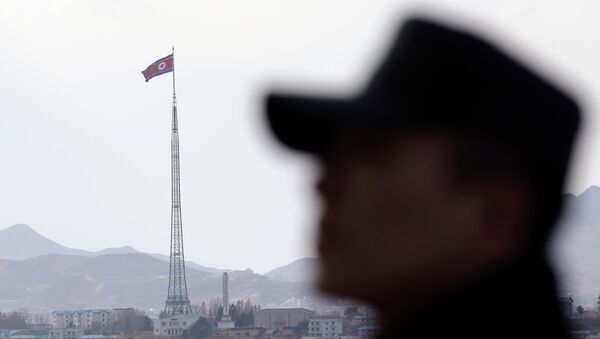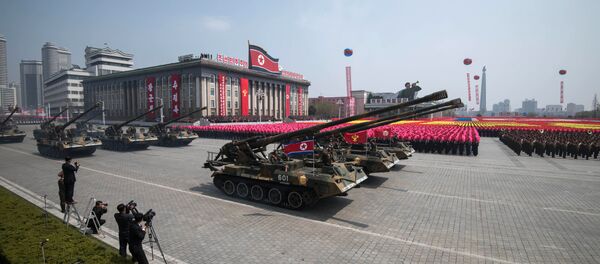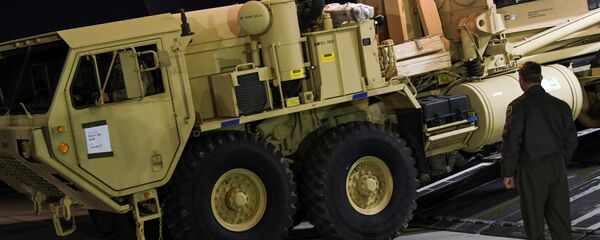WASHINGTON (Sputnik) — President Donald Trump will not allow North Korea to threaten any US allies or its partners in the region, US Department of State Acting Assistant Secretary for East Asian and Pacific Affairs Susan Thornton said in a press briefing on Monday.
"The President [Trump] was also very clear that he will not accept the United States and its allies and partners in the region being under threat from this hostile regime and its missile and nuclear programs," Thornton stated.
The United States is not seeking a conflict or regime change in North Korea, but is trying to solve the issue via peaceful denuclearization, she said.
“The US has been clear that we want to resolve this issue through the peaceful denuclearization of the Korean Peninsula,” Thornton said. “We are definitely not seeking conflict or regime change, but we are committed to defending our people and our allies should that be necessary.”
Earlier on Monday, Vice President Mike Pence said during his visit to South Korea that US military strikes on enemy forces in Afghanistan and Syria show the shift in Washington's strategy to halt North Korea’s nuclear and ballistic missile programs.
In response, the general staff of the North Korean armed forces threatened to launch a strike against US military bases in Japan and South Korea, as well as the presidential residence in Seoul in case of US aggression.
On April 15, North Korea reportedly test-launched a missile but the experiment failed.
In March, US State Secretary Rex Tillerson said that Washington might consider broader sanctions against North Korea.
Since the beginning of 2016, North Korea has carried out a number of missile launches and nuclear tests, prompting worldwide criticism and high tensions on the Korean peninsula.
"There hasn’t been any change and there hasn’t certainly been anything about the decision making process that would indicate any change [of THAAD deployment in South Korea]," Thornton added. "So we’re on track as far as that goes for THAAD Deployment."
The goal of THAAD is to provide deterrence to the imminent security threat from North Korea, Thornton added.
On March 8, components for the THAAD system began to arrive in South Korea as Seoul wanted the system to be deployed rapidly in response to the threat from North Korea’s ballistic missile tests.
China and Russia have repeatedly showed their objection to the deployment of THAAD, arguing that their real aim was to deter the strategic weapon systems not only in the Korean peninsula’s North, but primarily in China's hinterlands and Russia's Far East regions.





